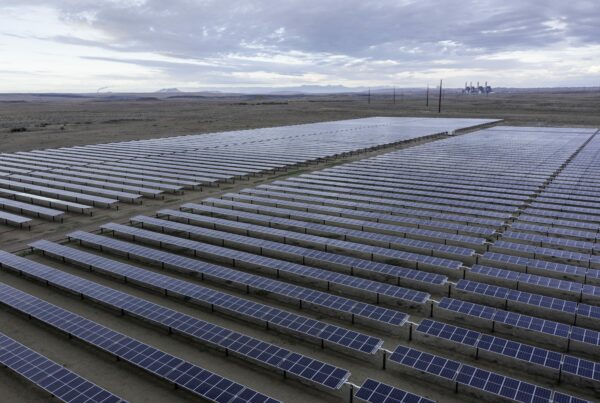La Plata Electric Association has seen a lot of change over the past several months. From receiving its buy-out calculation and voting to exit its contract with Tri-State, filing suit against Tri-State, issuing a pass-through rate increase, to a major uptick in local solar generation, we’re here to break it all down for you and tell you what’s next and how you can help.
The Big Three Legal and Policy Changes
- FERC’s Buyout Calculation: The Federal Energy Regulatory Commission (FERC) finally ruled in December on how Tri-State must calculate its member co-ops’ fee to terminate existing contracts. LPEA’s estimated exit-fee number is $209.7 million with $47.4 million in capital credit. This number is less than half of what Tri-State originally claimed.
- LPEA v. Tri-State: In early November, LPEA filed a lawsuit against Tri-State in La Plata District Court. LPEA sued Tri-State for breach of contract for refusal to provide equitable terms and conditions for LPEA to withdraw from Tri-State or proceed with a partial buy-out. LPEA’s representation in this case also represented the United Power co-op in a similar lawsuit. This case will likely improve LPEA’s negotiating power if and when they file to exit Tri-State.
- LPEA’s vote to exit Tri-State: On Monday, March 25th, the LPEA Board of Directors voted in favor of leaving their contract with Tri-State. Following in the footsteps of other Western co-ops, this move will give LPEA the freedom to secure more affordable and renewable energy that benefits our local economy. LPEA’s contract does require a two-year notice for exiting its contract, meaning LPEA will be fully out on April 1st, 2026.
Has your electric bill gone up? Tri-State is raising its prices.
It’s true: Tri-State– struggling with stranded assets, dwindling customers, and a negative credit rating– raised its rates, forcing LPEA to have a 6% pass-through rate increase that started in January 2024. Thankfully, LPEA’s recent decision to leave its contract with Tri-State, means LPEA will only be subject to Tri-States rates for two more years. There is also a silver lining to this rate increase. Co-ops are challenging Tri-State’s price increase, and if FERC finds the increase invalid, LPEA can return the money and issue credits to LPEA members.
What’s the deal with new solar?
With the help of federal, state, and local incentives, solar generation in LPEA territory has increased significantly. While this is a great problem to have, too much of a good thing, without upgrades, can cause safety issues. Local solar production happens during the day (typically the lowest time for energy use) and without battery storage. Where does that leftover power go? It feeds back into the lines, which can create too high of voltage in the line and pose safety issues. LPEA needs to keep line voltage at a certain percentage to minimize the danger of fallen lines. Increasing the power going back into the lines puts LPEA at risk of violating those important safety standards – hence the pause on some new solar approvals without battery storage. Luckily, LPEA has more options to solve this issue with batteries now that it is leaving its Tri-State Contract.
Why leaving Tri-State was the best decision for LPEA:
- Tri-State is getting more and more expensive, and LPEA members would have gotten stuck with the bill. While exiting Tri-State may also raise LPEA rates, those raises are temporary. Staying with Tri-State will never get cheaper.
- Tri-States power generation contributes mightily to the climate crisis, despite its ponderous efforts at decarbonization. LPEA is committed to prioritizing renewables, and LPEA’s new Sunnyside Solar project is proof.
- LPEA received a $13.4M USDA PACE loan to build a solar array with battery backup. If we were still in our contract with Tri-State this solar array would violate our existing agreement to purchase 95% of our power from Tri-State.
- Tri-State is governed by a board made of one member from each of its 42 members across four states with wide-ranging values, climates, and communities. LPEA knows what is best for its members, and the contract restricted local governance.
Are you ready to get involved?
Attend an LPEA Board Meeting: The LPEA board meets monthly, and members are invited to comment. You can make a huge difference by attending these meetings and expressing your gratitude for LPEA’s decision to leave Tri-State. You can also encourage the board to prioritize renewables in its hunt for new power sources. Find out the details of upcoming meetings at lpea.coop/lpea-board-directors-resources.
Get involved in the LPEA Elections: LPEA is a co-op, meaning anyone who pays an LPEA bill is a member and gets to elect board members who represent their values. These elections not only require your vote but are only successful due to dedicated volunteers. Please consider contributing some of your time or money to the LPEA Elections.
Participate in a local group: If you want to deepen your community and increase your local climate impact, join the Energy Futures group for monthly discussions about all things local energy.
To learn more, contact Emelie in our Energy and Climate program: emelie@sanjuancitizens.org



